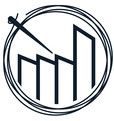Rethinking Research in the Digital Age
Let’s be honest—research today looks nothing like it did a few decades ago. Gone are the days of flipping through card catalogs and wandering the stacks (though I still love a good browse!). Now, we’re navigating massive digital archives, search engines, and algorithm-driven discovery tools. And while that sounds like a dream, it comes with its own set of challenges. One thing I’ve learned from reading authors like Turkel, Key, and Roberts, Messer-Kruse, Tara Calishain, Matthew Reidsma, and Caroline Criado Perez is this: being prepared matters more than ever.
Why Preparation is Key
Digital tools give us access to more information than ever before—but that doesn’t mean we’re finding better information. Search engines can make it feel like everything is just a click away, but they often prioritize popularity over quality. As Messer-Kruse puts it, “Today people search rather than study.” That hit home for me. To really get the most out of digital research, we need to be intentional. That means using tools like Zotero or Mendeley to organize our sources and metadata. It also means setting up RSS feeds (thanks, Tara Calishain!) to keep up with new content in our field—so we’re not always starting from scratch.
Watch Out for Bias
Reidsma’s work reminded me that even library search tools aren’t neutral. Algorithms can reinforce bias by favoring certain sources or perspectives. And Criado Perez shows how data itself can be biased—especially when it’s built around male-centered norms. If we’re not careful, we can end up with a skewed view of the world without even realizing it.
The Bottom Line
Doing research today isn’t just about finding information—it’s about understanding how that information is organized, who it represents, and what tools we’re using to access it. With a little preparation and a critical eye, we can make the most of the digital tools at our fingertips—and avoid falling into the trap of shallow searching.
Reference:
Chepesiuk, Ron. “JSTOR and Electronic Archiving.” Information Today 17, no. 7 (2000): 30–31.
Spinella, Michael. “JSTOR and the Changing Digital Landscape.” Serials Review 34, no. 3 (2008): 171–173.
Turkel, William J., Kevin Kee, and Spencer Roberts. “A Method for Navigating the Infinite Archive.” In History in the Digital Age, edited by Toni Weller, 61–75. London: Routledge, 2012. eBook.
Messer-Kruse, Timothy. “How Google Scrambled the Academic Mind.” Chronicle of Higher Education, January 2019. PDF.
Perez, Caroline Criado. “Preface” and “One-Size-Fits-Men.” In Invisible Women: Data Bias in a World Designed for Men, vx–xix; 157–168. New York: Abrams Press, 2019. eBook.
Reidsma, Matthew. “Bias in Library Discovery.” In Masked by Trust: Bias in Library Discovery, 117–146. Duluth, MN: Litwin Books, 2019. eBook.

